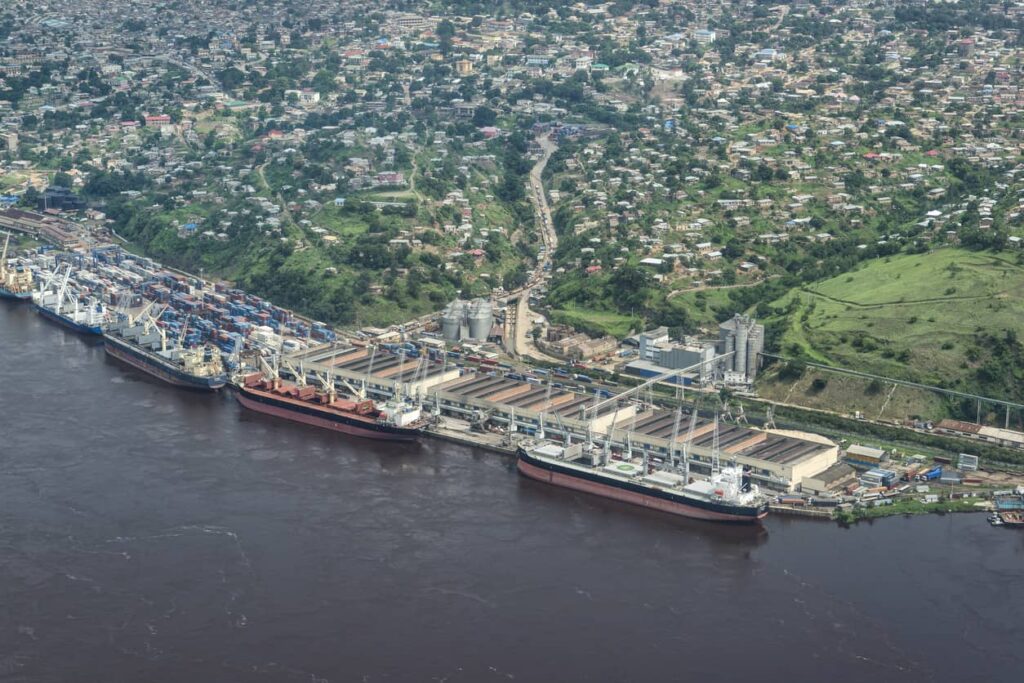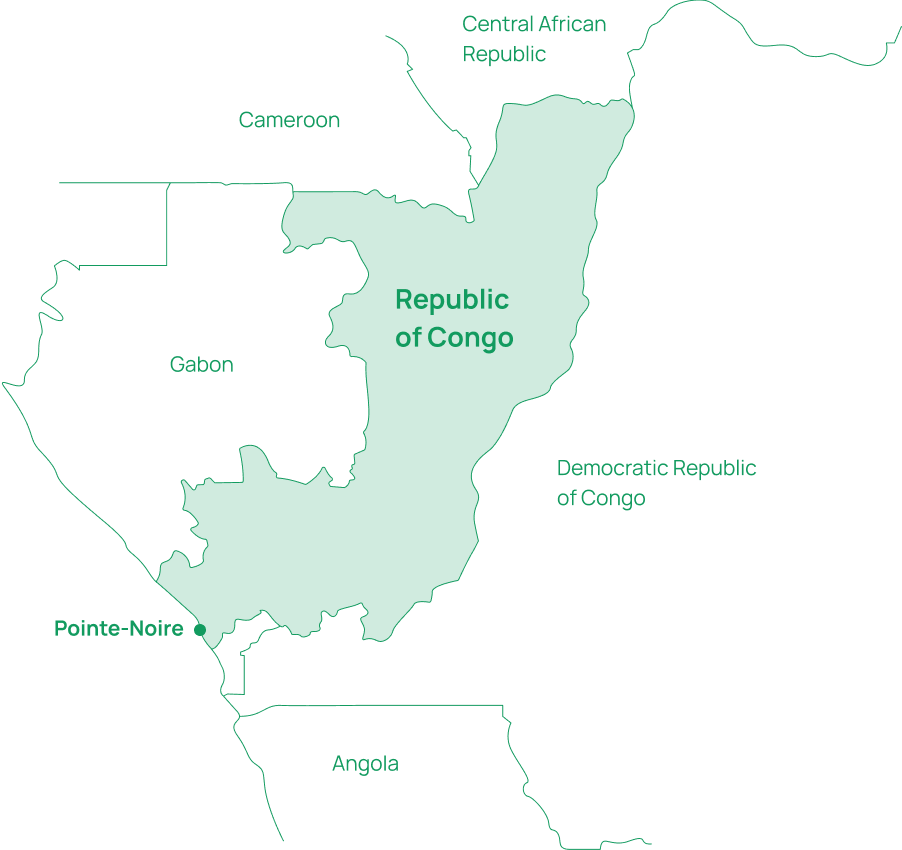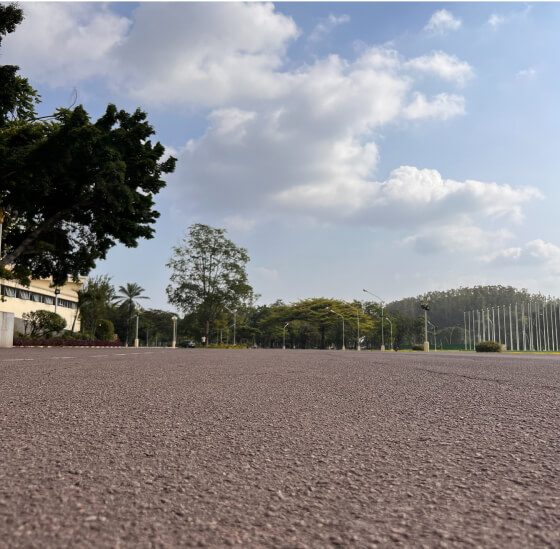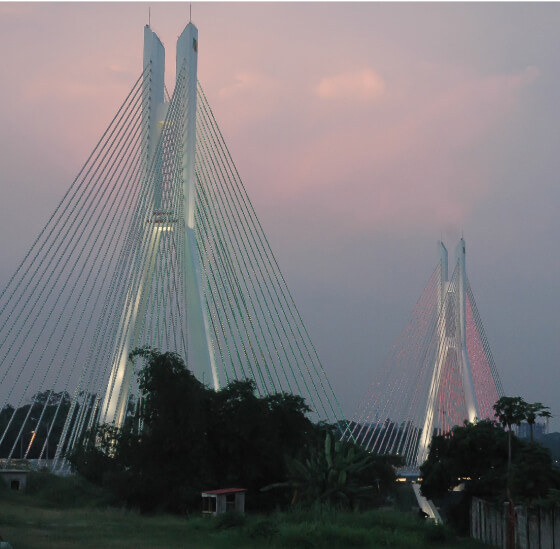- Home
- Getting to know Congo
- Investing in Congo
Investing
in Congo - Tourism
- E-services
E-services
- Vision
- FR
Ideally located at the heart of Africa's Atlantic seaboard, the Republic of the Congo offers major investment opportunities, not only in its own right, but also as a gateway to the regional market.


A true economic powerhouse, the Autonomous Port of Pointe-Noire is ideally located in the Gulf of Guinea, halfway between Cape Town in South Africa and Dakar in Senegal, at the crossroads of the major shipping routes of Europe, Asia, and America. As the only deep-water port in the region, with direct access to the ocean, it can handle more than a million twenty-foot equivalent units (TEUs) a year, over 90% of which are transshipped, particularly to the ports of Matadi and Boma in the Democratic Republic of Congo. It is also linked by freeway to the Brazzaville logistics hub, which enables it to serve the megalopolis of Kinshasa, a city of over 17 million inhabitants, via the beach.

Other road infrastructures have also created trade links with Angola via the Cabinda enclave, Gabon and Cameroon, while an infrastructure project is underway with the Central African Republic.


The Republic of Congo is a land of opportunity on many levels. It is endowed with abundant natural resources such as oil, gas, wood and minerals, as well as mining resources such as diamonds, iron, zinc and magnesium. These resources present opportunities for investment, extraction and trade that can contribute to economic growth and development.
This geographical location gives the Republic of Congo an undeniable advantage in the perspective of growing regional economic integration, marked in particular by the implementation of the African Continental Free Trade Area (ZLECAF) and the Brazzaville-Kinshasa bridge project. This represents a potential distribution market of 25 million consumers. With this in mind, the government has opted for the establishment of Special Economic Zones located at logistics hubs serving the sub-region, in order to offer manufacturers easy installation and deployment facilities. At the same time, to improve the country's general business climate, the government has undertaken a number of reforms to encourage the transition from the informal to the formal economy, business start-ups, tax stability and the fight against corruption (2022 law).
n the same vein, the Republic of Congo has launched, in partnership with an international partner, the construction of a modern reception center in Brazzaville: Mpila Twin Towers. These towers will house a smart building These towers host a smart building consisting of a modern shopping center with a height of over 135.80 meters, and two identical thirty-story towers. The first tower is reserved for a 5-star hotel, with a capacity of 349 rooms, while the second houses business and office center .
The country has a relatively young population, which can be used as a valuable resource. With the right investment in education and skills development, this young workforce can contribute to economic productivity andinnovation.
In addition to developing transport infrastructure, the government is also pursuing a policy of catching up in terms of energy access, production, transport and distribution systems. In 2023, among other projects, it inaugurated a 3.4 MW hybrid thermal/solar power plant, financed by the Congolese Treasury.
Finally, in terms of capacity and the digital economy, the Republic of Congo will be among the first beneficiaries in the region of the deployment of the 2Africa cable, the largest fiber optic capacity in Africa, thus opening up opportunities for the development of the sector not only for the country, but also for the entire sub-region.











